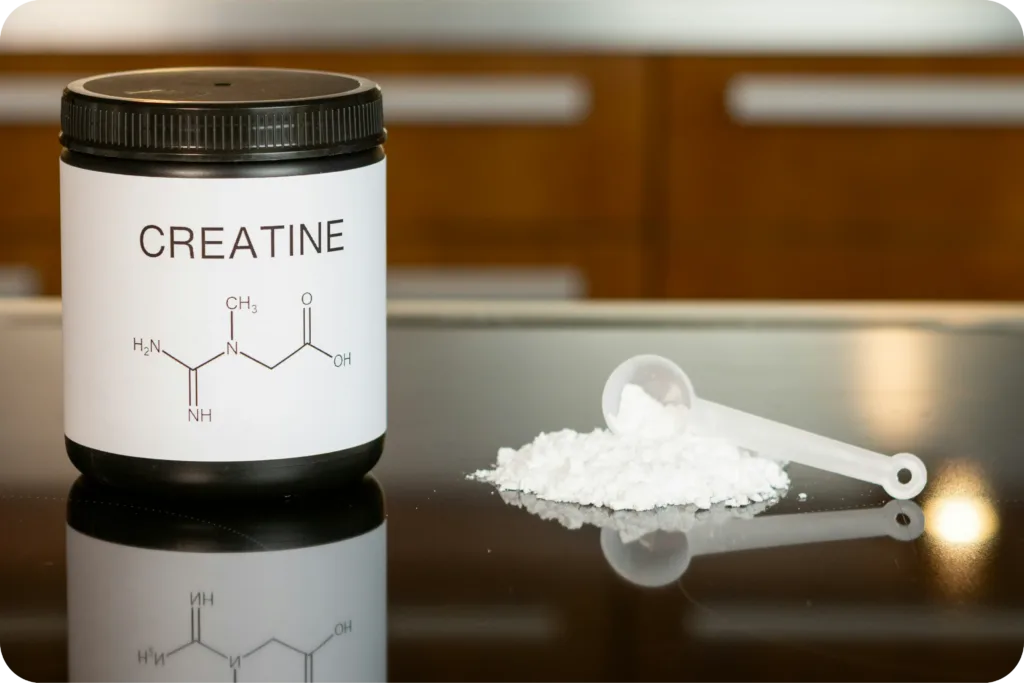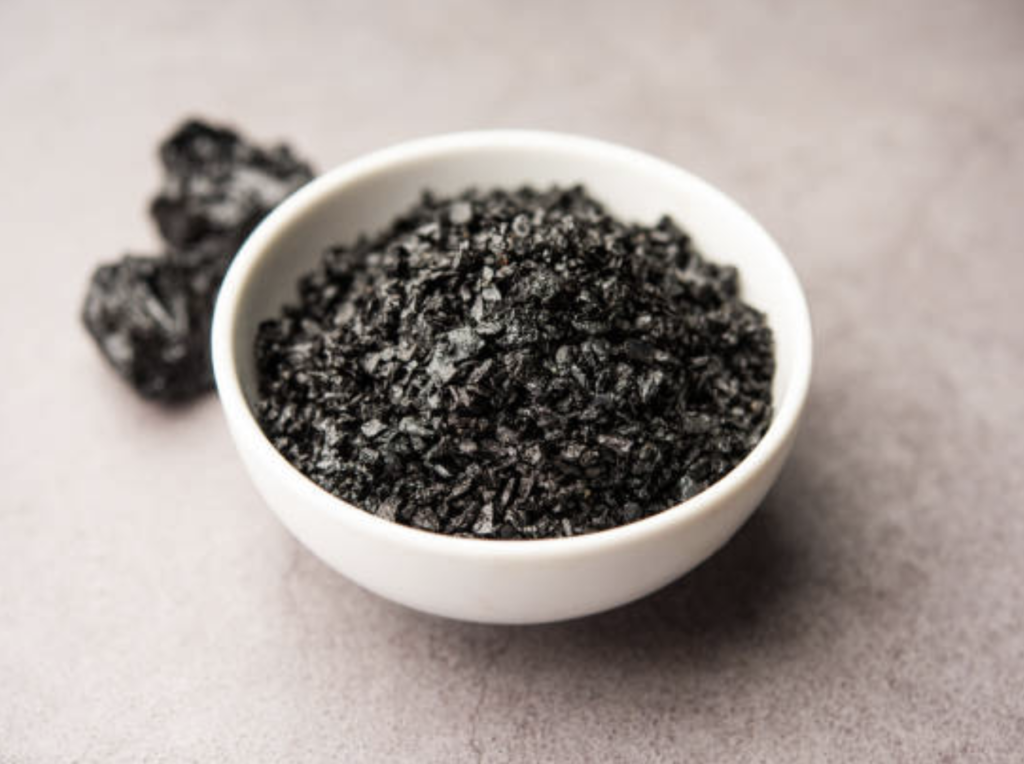Does Creatine Help with Weight Loss? Unveiling the Truth

Creatine is one of the most popular and widely used supplements in the fitness industry, primarily known for its ability to improve strength, power, and muscle performance. But when it comes to weight loss, many people wonder: does creatine help with weight loss? While creatine’s primary purpose is to enhance athletic performance, its impact on weight loss is more complex. In this article, we’ll explore how creatine works, its potential role in weight loss, and whether it’s a useful supplement for those looking to shed pounds.
What is Creatine?
Before diving into whether creatine can aid in weight loss, it’s important to understand what it is and how it works.
Creatine is a naturally occurring compound found in small amounts in animal-based foods like meat and fish. It is also produced by the body in the liver, kidneys, and pancreas. The primary function of creatine is to provide energy to muscles during high-intensity exercise. It does this by replenishing a molecule called ATP (adenosine triphosphate), which is the primary energy source for muscle contractions.
Creatine is most commonly used in the form of creatine monohydrate, a highly effective and affordable supplement. When taken as a supplement, it increases the body’s stores of creatine, allowing for improved athletic performance, particularly in activities involving short bursts of intense activity like sprinting or weightlifting.
Does Creatine Help with Weight Loss?
While creatine isn’t typically associated with weight loss, it can still play a role in your overall fitness journey. Let’s break down the potential benefits of creatine in relation to weight loss:
1. Improved Exercise Performance
Creatine is best known for boosting strength and performance during high-intensity exercise. By increasing your capacity for strength training, sprinting, or other high-intensity activities, creatine allows you to push harder and longer during your workouts. More intense workouts lead to greater calorie burn, which can support weight loss when combined with a proper diet and exercise routine.
For example, if creatine helps you lift heavier weights or complete more reps, this will increase the overall intensity of your workout, contributing to more calories burned and potentially aiding fat loss. However, it’s important to note that creatine itself doesn’t directly burn fat—it helps you perform better during fat-burning exercises.
2. Increased Muscle Mass
One of the main effects of creatine is an increase in muscle mass. This is because creatine promotes water retention within the muscles, making them appear fuller and more swollen. This initial increase in muscle mass might cause a temporary increase in body weight, but over time, gaining muscle can help you burn more calories at rest. Muscle tissue is more metabolically active than fat tissue, meaning that the more muscle you have, the more calories you burn even when you’re not exercising.
While you might notice a slight increase in weight when you start taking creatine, it’s important to distinguish between water weight and actual fat gain. The increase in weight due to creatine supplementation is often temporary and due to water retention in the muscles.
3. Potential Reduction in Fatigue
Creatine has been shown to reduce fatigue and enhance recovery, allowing you to train harder and more frequently. By improving recovery times and reducing the perception of fatigue, creatine may help you maintain consistency in your workouts. Over time, this can contribute to greater calorie expenditure and improved fat loss. However, it’s important to remember that creatine is not a magic solution for weight loss—it works best when used in conjunction with a proper diet and exercise routine.
4. Creatine and Weight Loss Myths
There are many myths surrounding creatine and weight loss. One common misconception is that creatine causes weight gain due to fat accumulation. As mentioned earlier, creatine-induced weight gain is typically due to water retention in the muscles, not fat. This can be misleading for those who are trying to lose weight and are discouraged by the scale showing an increase in weight. However, this weight gain is not an indication of fat gain.
Additionally, some people worry that creatine might make them appear bloated, but the water retention associated with creatine tends to be confined to the muscles, not the abdomen or other areas where fat tends to accumulate. For most individuals, any bloating is minimal and temporary.
What Does Science Say About Creatine and Weight Loss?
While creatine is not a direct fat-burning supplement, there is evidence to suggest it can play a role in improving overall body composition. Studies have shown that creatine supplementation, when combined with resistance training, can lead to increased lean body mass (muscle) and reduced body fat percentage over time.
A study published in the Journal of Strength and Conditioning Research found that creatine supplementation combined with resistance training increased fat-free mass and reduced fat mass. Another study demonstrated that creatine, when paired with aerobic exercise, helped improve body composition and overall fat loss.
While these studies don’t suggest that creatine directly burns fat, they do indicate that creatine can indirectly support fat loss by enhancing exercise performance, promoting muscle growth, and improving overall energy expenditure.
Should You Take Creatine for Weight Loss?
Creatine can be a valuable addition to your weight loss journey, but it’s not a quick-fix solution. Here’s what you should consider before adding creatine to your supplement routine:
1. Your Fitness Goals
If your primary goal is to build muscle, improve strength, and enhance athletic performance, creatine can help you achieve those goals, which in turn may support weight loss. If you’re focused primarily on fat loss, creatine won’t directly help with fat burning but can improve your workout performance, which may indirectly lead to greater calorie burn.
2. Exercise Routine
Creatine works best when combined with resistance training or high-intensity exercise. If you’re engaging in these types of activities, creatine can help you perform at your best, allowing for more productive workouts and ultimately aiding in weight loss. However, if your exercise routine primarily consists of low-intensity activities, creatine may not provide the same benefits.
3. Diet
No supplement can replace a healthy, balanced diet when it comes to weight loss. Creatine may help enhance your workouts, but it won’t lead to weight loss on its own. A combination of a calorie deficit (eating fewer calories than your body burns) and regular exercise is key to losing weight.
FAQ: Does Creatine Help with Weight Loss?
Q: Will creatine make me gain fat? A: No, creatine does not cause fat gain. Any weight gain you experience is likely due to water retention in the muscles, not fat.
Q: Can I lose weight while taking creatine? A: Yes, creatine can help with weight loss indirectly by improving exercise performance, allowing for more intense workouts that burn more calories. However, creatine alone won’t burn fat.
Q: Does creatine cause bloating? A: Some people may experience mild bloating due to water retention, but this is typically temporary and localized to the muscles rather than the abdomen.
Q: Should I take creatine if I want to lose weight? A: Creatine can be a useful supplement for improving workout performance and muscle growth, which can support weight loss. However, it should be combined with a healthy diet and exercise routine for the best results.
How to Use Creatine for Maximum Benefits
If you’re considering adding creatine to your routine to support your weight loss and fitness goals, it’s important to know how to use it effectively. Here’s a simple guide to help you get started:
1. Creatine Dosage:
The typical recommended dose of creatine is 3 to 5 grams per day. This is a standard maintenance dose that provides the benefits of creatine without the need for loading phases.
While some people opt for a “loading phase,” where they take 20 grams per day for 5–7 days, this is not necessary and may increase water retention. The maintenance dose of 3–5 grams per day is enough to saturate your muscles with creatine over time.
2. When to Take Creatine:
You can take creatine at any time of the day, but taking it post-workout is often recommended. This is because your muscles are more receptive to nutrients after exercise, and combining creatine with a post-workout meal or shake that contains protein and carbohydrates can enhance its absorption.
Some people also prefer to take creatine before their workout to experience its full benefits during intense training. Ultimately, the timing doesn’t matter as much as consistency.
3. Mixing Creatine:
Creatine typically comes in powder form. To take it, simply mix 3 to 5 grams of creatine with water, a pre-workout shake, or even a post-workout drink. You can also mix it with juices like orange juice to enhance absorption, as the sugar can help increase insulin levels, promoting better uptake of creatine into the muscles.
4. Stay Hydrated:
Creatine draws water into your muscles, so it’s important to stay hydrated while supplementing. Drink plenty of water throughout the day, especially if you’re using creatine, to prevent dehydration and support your workouts.
Conclusion: Does Creatine Help with Weight Loss?
Creatine is a valuable supplement for enhancing strength, power, and performance, but it does not directly cause weight loss. By improving exercise intensity, increasing muscle mass, and promoting better recovery, creatine can indirectly support your weight loss goals. However, it’s important to combine creatine supplementation with a balanced diet and regular exercise routine to achieve the best results. If you’re looking to improve your fitness and body composition, creatine can be a helpful tool—but it’s not a magic pill for fat loss.


